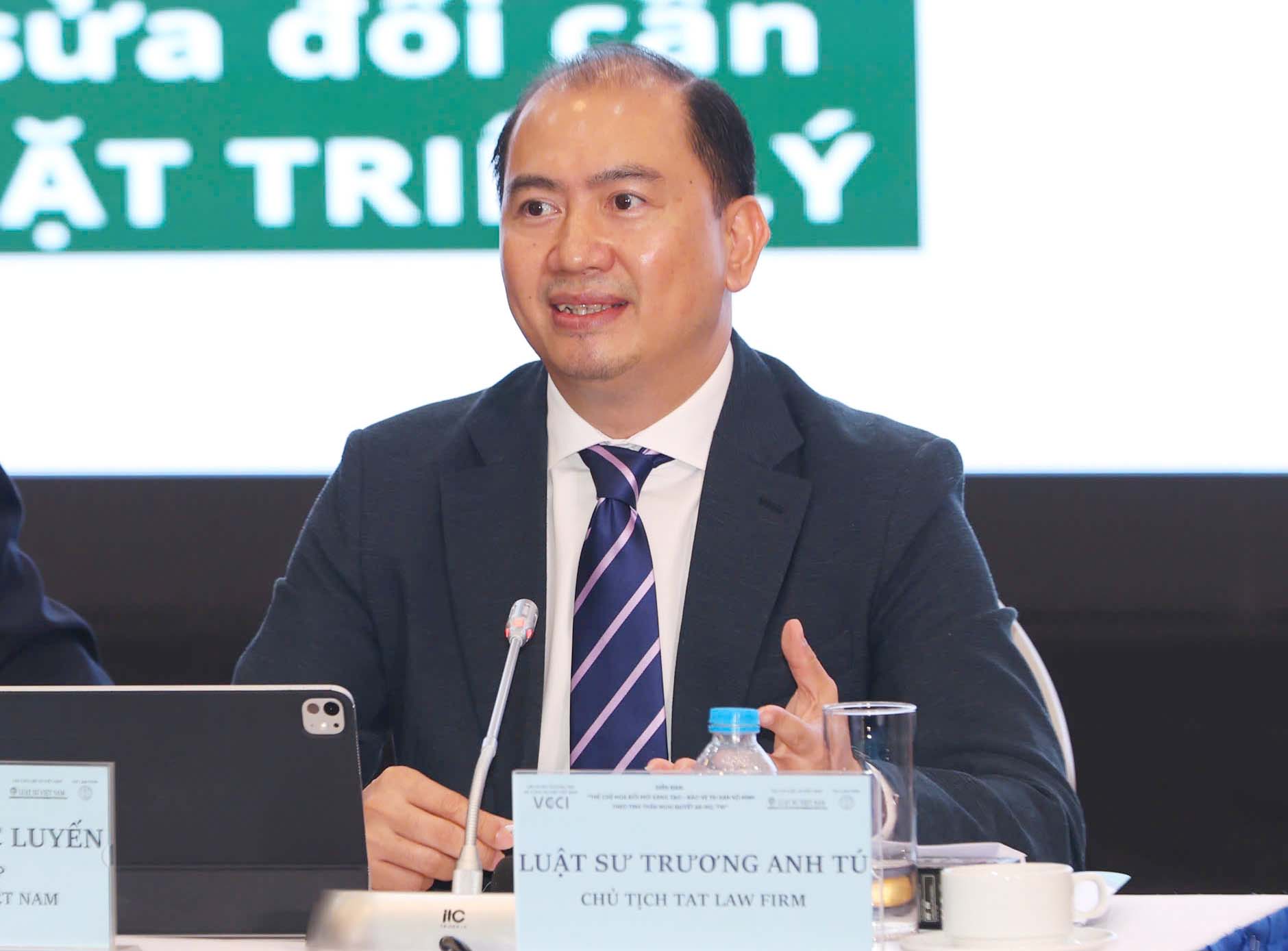On September 11, Vietnam Bar Association, Vietnam Federation of Commerce and Industry (VCCI) and Truong Anh Tu Law Firm (TAT Law Firm) jointly organized a Scientific Forum with the theme: "In institutionalization of innovation - Protection of intangible assets in the spirit of Resolution 68-NQ/TW".
At the forum, lawyer Truong Anh Tu - Chairman of TAT Law Firm - said that for the first time in the history of Party documents, Resolution 68-NQ/TW on private economic development has specifically called "invisible assets" a key resource and required the full institutionalization of rights for this type of asset.
According to lawyer Truong Anh Tu, this is a thinking turning point - when the Party not only raises the issue of "protecting" intellectual property, but also raises it to a strategic issue for a modern market economy.
Regarding the tasks and solutions that the Party sets for private economic assets, including "invisible assets", according to lawyer Truong Anh Tu, the Resolution clearly states a number of contents such as promoting reform, perfecting, improving the quality of institutions and policies, ensuring and effectively protecting ownership rights, property rights, etc.
At the same time, review, improve and effectively implement legal regulations on the protection of property ownership rights, including the right to intellectual property (SHTT) and intangible assets; minimize legal risks.
There are policies to support domestic valuation and protection of SHTT rights; support and encourage private enterprises to register for SHTT rights abroad and international organizations...
According to lawyer Truong Anh Tu, in the knowledge economy, the difference does not lie in the scale of the workshop, but lies in the creativity index and the value of intellectual property.
At the forum, lawyer Truong Anh Tu also clearly analyzed current barriers such as legal regulations, banking, and markets.
In which, it stipulates that there will be further fractions. Or the Law on Social Insurance is also a "protection Law" - not a "law on property development".
The current law still mainly regulates the right and registration procedures - not eligible to turn IP into assets that can be valued, identified, traded, insurance, or mortgaged.
Therefore, a financial property law is needed - allowing intangible assets to be included in accounting, banking and investment systems.

From the above barriers, lawyer Truong Anh Tu proposed a policy to move from the protection law to the development law. In particular, three policy pillars need to be institutionalized immediately.
First, recording IP as a financiable asset. Accordingly, the law must allow IP to be accounted for, as an asset contributed capital, and as an asset secured.
The Ministry of Finance, the Ministry of Justice and the State Bank need to issue valuation standards and IP recognition standards in financial reports.
Second, form a market and an ecosystem for pricing - IP transactions. Finally, there is strong ownership protection - strictly handle IP violations.
Lawyer Truong Anh Tu believes that the SHTT-specialized court needs to be consolidated and the mechanism for enforcing IP judgments must be transparent, effective, and deterrent.
At the forum, Mr. Pham Van Hung - Representative of the VCCI Legal Committee - pointed out a number of shortcomings and problems in management in innovation.
In particular, regulations on licenses and conditions apply to all scales and forms of operation, creating great barriers for innovative enterprises, which need flexibility for testing and development.
In addition, many new business models or technologies are unclear about their success, requiring space and time for testing. Applying rigid regulations from the beginning can "stuck" development potential.
Mr. Hung said that for Vietnam, innovation does not necessarily have to create something completely new in the world, but must do something new and effective in the specific context of Vietnam.










